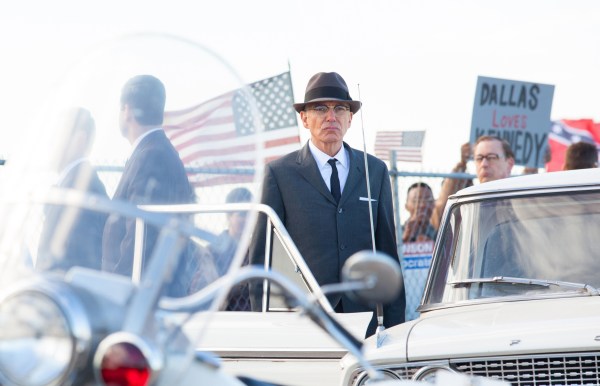
On Nov. 22, 1963, less than an hour after he arrived in Dallas for a political rally, President John F. Kennedy was shot down in cold blood in what was supposed to be a joyous parade, changing the course of history and the fate of a nation. Now, on the eve of the 50th anniversary of the assassination that shook the world, journalist-filmmaker Peter Landesman brings us Parkland, a sobering, documentary-style film commemorating eyewitness accounts of what happened in the aftermath of the tragedy, some of them fresh as a new wound, all of them painful but vital to a deeper understanding of one of the darkest chapters in American history.
The title refers to Parkland Memorial Hospital in Dallas, where the bodies of both President Kennedy and Lee Harvey Oswald were rushed after they were shot. Telling so many stories simultaneously, the movie jumps around all over the place, from FBI headquarters to the hospital emergency room to Love Field airport to the home of the shocked Oswald family. But it dramatizes the dark hours following the assassination with throat-clenching suspense culled from grim, eye-opening facts I found more gripping than any fiction.
The impact on so many tangential lives makes it difficult to concentrate on any one story, but the chronicle’s maelstrom of confusion is greatly clarified by an expert ensemble of a first-rate cast: Billy Bob Thornton as the head of the Secret Service in Texas, Zac Efron and Colin Hanks as the young interns on duty, Marcia Gay Harden as the head nurse in the hospital trauma unit and Paul Giamatti as Abraham Zapruder, the onlooker who took the tragic Super 8 footage of the motorcade that ended up in Life magazine.
Some of the details were captured in Oliver Stone’s JFK, but they were lost in that film’s overripe sensationalism. In Parkland, you get bloody hospital scenes that are hard to watch, actual footage of Walter Cronkite’s famously tearful on-camera reaction to the disaster and the spot where the motorcade stopped at the corner of Elm and Houston Streets. You also see the cynical reaction of the captured murder suspect (Jeremy Strong, looking exactly like Lee Harvey Oswald) in a harrowing jailhouse scene with his numbed, patriotic brother, Robert (an engrossing James Badge Dale). Jackie Earle Haley is the priest called in to administer last rites over the president’s blood-soaked corpse while Jackie (Kat Steffens) slips her gold wedding band onto his finger for burial. Ron Livingston is excellent as FBI agent James P. Hosty, who was ordered to destroy vital evidence overlooked in the Dallas bureau files about Oswald so his superiors could save the bureau’s reputation. Equally arresting is Jacki Weaver as Margeurite Oswald, the killer’s demented, publicity-craving mother, who claimed her son was an American spy betrayed by the U.S. government and demanded he be buried as a hero in Arlington cemetery with the president. Each observant detail is collated in a dossier that is consistently fascinating.
But it’s the unfamiliar nuances that slice the conscience: the sight of Mrs. Kennedy in her pink suit, shell-shocked and grief-stricken, as she clutches fragments of her husband’s brains and skull in her delicate hand, the Dallas supervising physician who orders the Parkland medical team not to remove President Kennedy’s boxer shorts out of dignity and respect and the Secret Service agent who contemplates leaving Jackie behind with the cynical words, “She’s not a government executive or any longer related to one.” I was chilled by the Dallas cop who advises Robert Oswald to change his name, move his family as far away as he can get and never return to Texas “even to die.” And I found it especially touching to witness the mixed reactions of the same hospital staff that tried valiantly to save the president, forced by professional duty to treat the body of Oswald with the same respect for life and death a few days later.
There’s a lot to think about in Parkland, and, even if Mr. Landesman, in his first feature film, does not always manage the proper balance between personal anguish and historical significance, Parkland is well worth seeing—an absorbing new footnote to a history lesson that will never fade.
PARKLAND
Written by: Peter Landesman
Directed by: Peter Landesman
Starring: Zac Efron, James Badge Dale and Colin Hanks
Running time: 93 min.
Rating: 3/4

